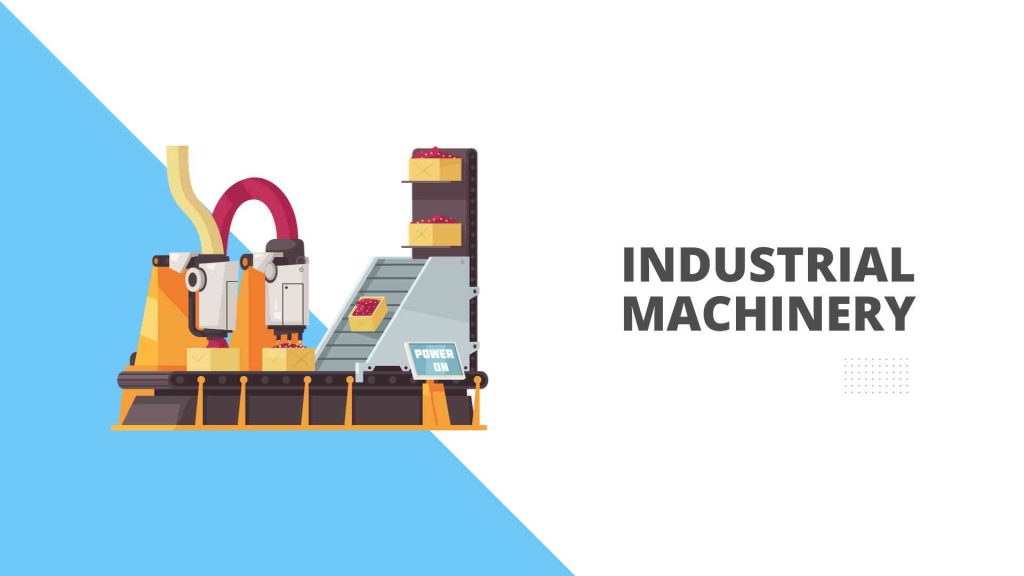In the realm of industrial machinery, the efficient management of raw materials is paramount for ensuring smooth operations, cost-effectiveness, and sustainability. Raw materials are the lifeblood of manufacturing, and their effective management can significantly impact a company’s bottom line, production timelines, and environmental footprint.
We will explore the essential aspects of industrial machinery raw material management, from procurement to disposal, and discuss strategies for optimizing this critical process.
Procurement and Sourcing
The foundation of sound raw material management lies in the procurement and sourcing strategies. Companies must carefully assess their raw material needs, considering factors such as material type, quality, quantity, and supplier reliability. Here are some key considerations:
Supplier Selection: Choose suppliers with a proven track record for providing high-quality materials, on-time deliveries, and competitive pricing.
Supply Chain Diversification: Avoid over-reliance on a single supplier or region to mitigate supply chain disruptions.
Quality Control: Execute strict quality control measures to ensure that raw materials meet the required specifications.
Sustainable Sourcing: Consider environmentally friendly sourcing options, such as recycled materials or materials from sustainable sources, to reduce your environmental impact.
Inventory Management
Efficient inventory management is crucial to minimize excess raw material storage costs while ensuring a constant supply for production. Employ these strategies:
Just-In-Time (JIT) Inventory: Adopt JIT principles to reduce inventory carrying costs by receiving materials as needed, thereby lowering storage costs and reducing waste.
Forecasting and Demand Planning: Utilize advanced forecasting techniques and demand planning to optimize inventory levels, preventing overstock or shortages.
Inventory Tracking Technology: Invest in inventory management software and technology to monitor inventory levels in real time and streamline reordering processes.
FIFO (First-In, First-Out) System: Implement FIFO to ensure that older raw materials are used before newer ones, reducing the risk of material deterioration or obsolescence.
Material Handling and Storage
Proper material handling and storage practices can prevent damage, contamination, and waste:
Storage Conditions: To preserve material quality, store raw materials in designated areas with appropriate environmental conditions, such as temperature and humidity control.
Handling Equipment: Invest in suitable handling equipment, such as forklifts or conveyors, to minimize the risk of accidents and material damage during transportation.
Labeling and Identification: Clearly label and identify raw materials to prevent mix-ups and ensure accurate tracking.
Waste Reduction and Recycling
Sustainability is an increasingly important aspect of raw material management. Reduce waste and decrease your environmental footprint by:
Recycling Programs: Implement recycling programs to repurpose waste materials generated during production processes.
Waste Audits: Regularly assess waste generation and identify areas where waste reduction measures can be implemented.
Sustainable Material Alternatives: Explore alternative raw materials that are renewable, recycled, or biodegradable, where feasible.
Regulatory Compliance
Adherence to relevant regulations and industry standards is essential. Ensure compliance with environmental, safety, and quality standards to avoid legal issues and reputational damage.
Environmental Compliance: Comply with environmental regulations related to concerns, emissions, and hazardous manhandling hazardous materials Regulations. Ensure your raw material management processes meet safety standards to protect employees and prevent accidents.
Effective raw material management is a multifaceted process encompassing procurement, inventory control, material handling, sustainability, and compliance. By optimizing these aspects, industrial machinery manufacturers can enhance operational efficiency, reduce costs, and minimize waste. And contribute to a more sustainable future.
In a world where resources are finite and environmental concerns are growing, responsible raw material management is a business imperative and a moral obligation.
How Acumatica Can Enhance?
Acumatica Cloud ERP offers a powerful solution to enhance raw material management in industrial settings. Its robust procurement and inventory management capabilities enable precise tracking of raw material quantities and qualities.
And suppliers, facilitating efficient sourcing and cost-effective inventory control. The system’s real-time visibility and data analytics empower organizations to make informed decisions, optimize demand forecasting, and minimize excess stock or shortages.
Acumatica’s adaptability allows for the seamless integration of sustainability initiatives and compliance measures into the raw material management process, ensuring businesses remain competitive and efficient. And environmentally responsible in an increasingly demanding global market. Contact us for a customized ERP solution.

Vijay comes with a vast experience in ERP and enterprise solutions space with about 20 years of experience in various packaged application like Acumatica, SAP, Orion, Salesforce.com, SugarCRM and, SalesLogix.

